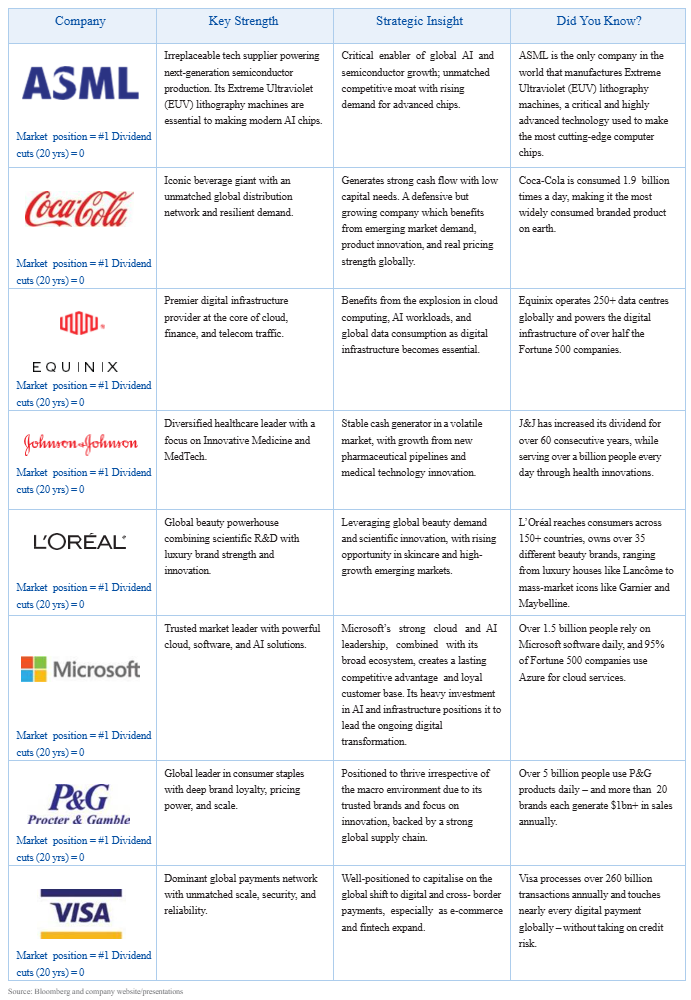
Rethinking investing in an age of uncertainty
Duggan Matthews, Investment Professional at Marriott

For much of the last century, investment success was often linked to foresight. The prevailing belief was that skilled investors could anticipate market cycles, economic inflection points, and policy shifts to stay ahead of the curve.
But that paradigm is shifting.
Today, markets are no longer guided solely by fundamentals such as interest rates or corporate earnings. Instead, they are increasingly driven by fast-moving, unpredictable forces: a single tweet from a political leader, an unexpected regulatory change, or a sudden shift in public sentiment can move global markets in minutes.
In this environment, forecasting outcomes with consistency has begun to resemble speculation more than strategy. Political, ideological, and geopolitical developments now unfold in real time and often without warning. Building portfolios based on what might happen next has become a high-risk, low-confidence exercise.
The standard disclaimer, “past performance is not indicative of future results”, has never felt more relevant.
Why relative performance is not a North Star
Despite the growing complexity of markets, many investors and managers still operate within a relative performance framework. Success is too often measured not by the absolute value created, but by how a portfolio compares to a benchmark or peer group.
This approach is increasingly misaligned with the needs of long-term investors. It encourages short-termism, herd behaviour, and risk-taking aimed more at outperforming others than at preserving capital or steadily compounding returns.
Short-term performance alone often tells an incomplete story. Strong results may be driven by timing, sentiment, or external events – factors that are rarely repeatable. A rally powered by momentum or favourable political developments may look impressive but may not be sustainable over time.
In contrast, genuinely resilient returns come from businesses whose fundamentals endure across cycles. They come from understanding not just what performed well, but why – and whether it can be repeated.
By failing to prepare, you are preparing to fail
In a world increasingly defined by uncertainty, the most useful question investors can ask is not, “What’s going to happen next?” but rather, “How prepared are we for whatever comes?”
Following Benjamin Franklin’s advice in the heading above, a different approach to portfolio construction is now required. Instead of trying to anticipate each twist in the market, investors should focus on building portfolios designed to withstand a wide range of possible outcomes.
It starts with owning the right kinds of businesses. High-growth, non-dividend-paying stocks, common in sectors such as AI or biotechnology, may deliver outsized returns in favourable conditions but are often highly sensitive to swings in sentiment. Similarly, commodity and resource stocks can add another layer of volatility, as they are closely tied to geopolitical tensions and fluctuating global demand.
By contrast, companies that provide essential goods and services – such as consumer staples, utilities, and healthcare – tend to offer more stable cash flows and earnings. Businesses with a track record of paying and growing dividends are particularly valuable, offering predictable income even in turbulent markets. These are the types of companies that form the backbone of resilient portfolios.
Focus on fundamentals, not forecasts
At Marriott, our investment philosophy is grounded in a simple but powerful principle: when investment outcomes are more predictable, investors gain greater peace of mind. That peace of mind fosters long-term commitment, enabling investors to benefit from the full power of compounding.
To support this, we construct portfolios around companies with strong balance sheets, consistent dividend histories, and clear paths to sustainable growth. These businesses do not rely on market timing or short-term catalysts. Instead, they generate dependable cash flows by meeting enduring needs.
We also avoid the temptation to chase relative performance, which often drives investors toward speculative or momentum-driven positions that may deliver temporary gains but lack staying power.
This approach may not always top performance tables during bull markets, but it provides greater consistency and resilience during periods of volatility and uncertainty
Quality at the core: companies that anchor our portfolios
The companies we invest in share a common set of characteristics: they have durable business models, essential products and services, strong market positions, and pay consistent, growing dividends. Below are just a few examples of the types of businesses that help form the foundation of our portfolios:

Resilience over prediction
In today’s unpredictable markets, we believe resilience is a more dependable strategy than prediction. At Marriott, we focus on quality businesses with stable cash flows, consistent dividend growth, and durable competitive advantages – companies that can perform in all market conditions. By maintaining this disciplined approach, we aim to preserve capital, deliver steady compounding returns, and provide our investors with greater financial peace of mind.

.svg)












